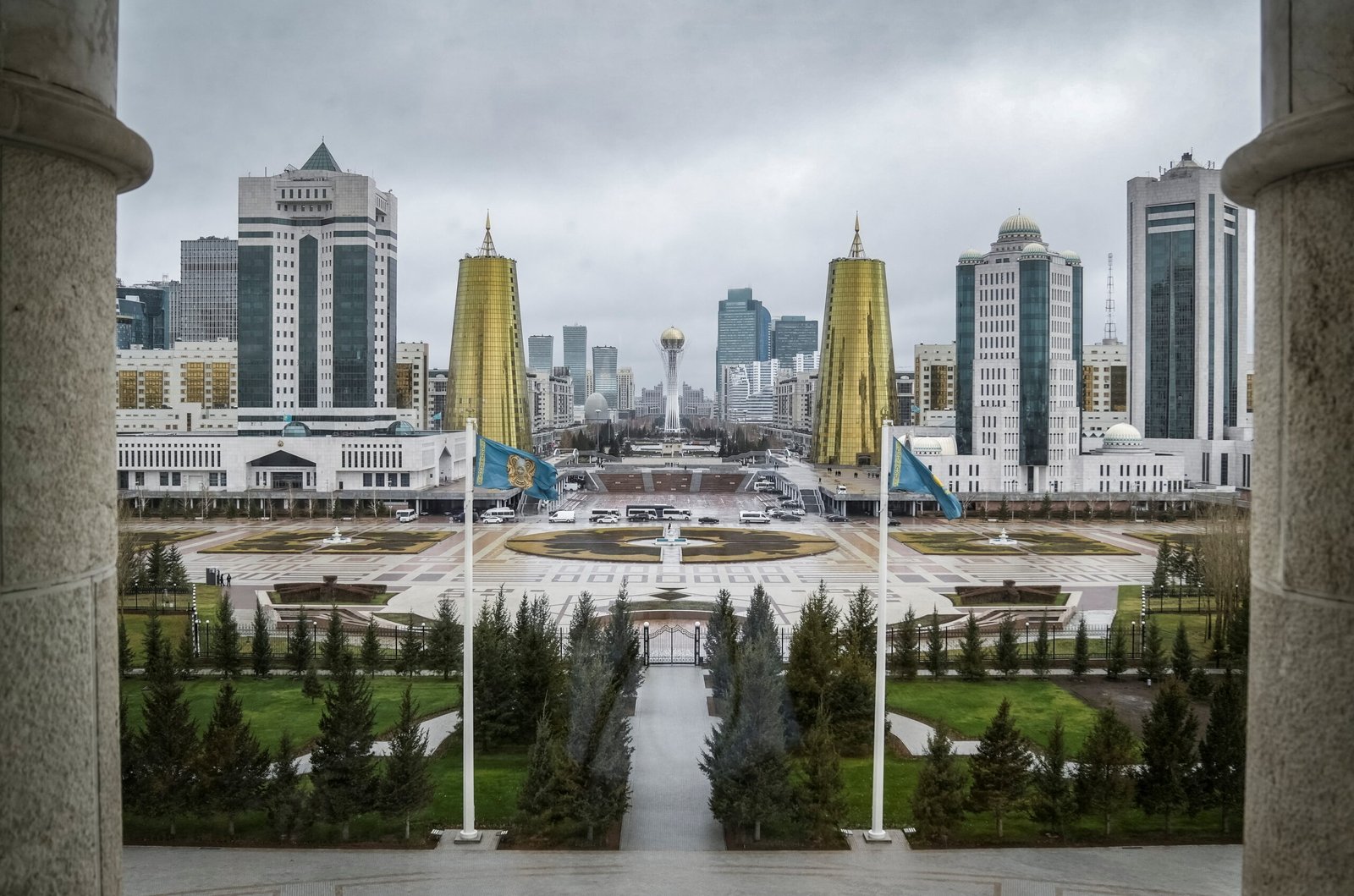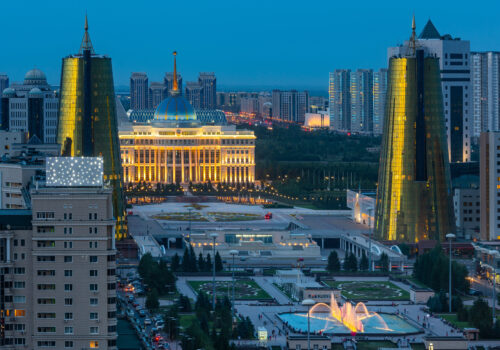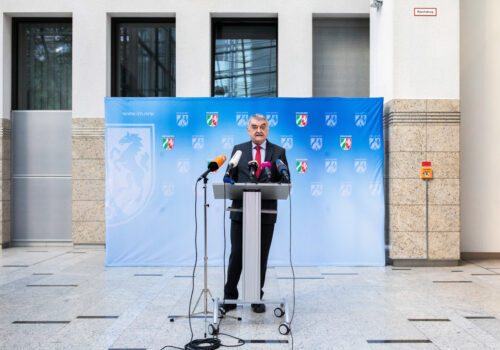Central Asia has been far from US policymakers’ top priority in recent years. So it was significant on January 15 to see US Senator Steve Daines press the then-designate US secretary of state, Marco Rubio, on Central Asia policy during his Senate confirmation hearing. Daines said to Rubio that the new administration should support congressional efforts to finally end the Jackson-Vanik Amendment, which prevents the United States from establishing permanent normal trade relations (PNTR) with the Central Asian states. What’s more, Rubio appeared to agree on the need for a repeal of Jackson-Vanik—which he called “an absurd relic of the past.”
Indeed, repealing the outdated amendment is perhaps the best first step the Trump administration can take in its Central Asia policy. Doing so would provide the administration with an opportunity to increase US cooperation with Central Asian states in several domains beyond simply trade and investment. In the longer term, the United States could build on this opening to Central Asia to deepen collaboration on infrastructure investment, rare earths extraction, and counterterrorism, all while providing a counterweight to Russian and Chinese influence in the region.
Repealing a Cold War relic
The Jackson-Vanik Amendment is a wonky but long-debated and hugely consequential issue for the Central Asian states, including the region’s economic leaders, Kazakhstan and Uzbekistan. Jackson-Vanik was originally tacked on to the 1974 Trade Act to add trade barriers against nonmarket economies that restricted their citizens’ freedom of migration. These countries would pay higher tariffs to export to the United States and could not access US investment or credit guarantees.
The primary target of this amendment was the Soviet Union, in particular Moscow’s condonement of antisemitism and its limits on Jews’ ability to emigrate from the country. At the time, Jackson-Vanik was seen by many as a positive step to advance human rights in the Soviet Union.
After the Soviet Union fell in 1991, Congress gradually lifted Jackson-Vanik restrictions for most former Soviet republics that had been essentially grandfathered into the law’s provisions. But the amendment still applies to Azerbaijan, Kazakhstan, Tajikistan, Turkmenistan, and Uzbekistan, fifty-one years after the amendment’s enactment and more than thirty-three years since the fall of the Soviet Union. During his confirmation hearing, Rubio correctly noted that the US Department of Commerce no longer considers Kazakhstan a “nonmarket economy,” which, per the letter of the amendment, should exclude it from the provision’s trade restrictions.
A wealth of opportunity
Kazakhstan and Uzbekistan in particular want stronger economic ties with the United States. Kazakhstan is leading the development of the Trans-Caspian International Transport Route or “Middle Corridor” to send products and commodities across the Caspian Sea and the South Caucasus, avoiding transshipment through Russia.
Kazakhstan is also rich in rare earth elements and other metals crucial to the green energy transition and battery development. Establishing PNTR and investment guarantees with Kazakhstan could catalyze investment and exports to the United States. Currently, China controls 60 percent of global production and more than 85 percent of processing capabilities for critical minerals. Closer trade ties between Washington and the Central Asian states would allow the United States to diminish its dangerous dependence on China for these resources.
In December 2024, Uzbekistan signed a deal with the United States to support Tashkent’s accession to the World Trade Organization. The country is steadily opening to foreign investment, and it sees US companies as essential to developing the country’s fast-growing economy. Tashkent has also said that it wants to be a leader in information technology exports, and it could be competitive with Eastern Europe and India if it faced the same competitive tariff rates provided by PNTR.
Jackson-Vanik remains on the books for the Central Asian states in large part due to legislative inertia in Congress and a lack of US understanding about the region. It would require an act of Congress to permanently do away with the amendment. Crucially, its removal is a bipartisan issue: Democratic Senator Chris Murphy and Republican Senator Todd Young introduced legislation in the 118th Congress to extend PNTR to Kazakhstan, Uzbekistan, and Tajikistan. Meanwhile, a bipartisan group in the House led by Democratic Representative Jimmy Panetta has already proposed legislation in the 119th Congress that would remove Jackson-Vanik for Kazakhstan.
These lawmakers now appear to have an ally in Rubio, who can champion the removal of Jackson-Vanik in the executive branch once new legislation is introduced in the Senate, possibly by Daines himself. With Republicans controlling the presidency, the Senate, and the House of Representatives, there may be fewer political obstacles than ever to the permanent removal of the Jackson-Vanik amendment for countries in Central Asia. The result would be greater US leverage in a strategic region between Russia, China, and Iran, as well as competitive opportunities for US companies to invest in or trade with Central Asia.
Only the first step
But the Trump administration shouldn’t limit its Central Asia policy to only the repeal of the Jackson-Vanik Amendment. It should also help develop new trade infrastructure, look for opportunities for US President Donald Trump to visit the region, and support counterterrorism efforts against Islamic State-Khorasan Province. All of these initiatives would help push back against Russian and Chinese influence in the region.
Kazakhstan has been working closely with Azerbaijan and Georgia to turn the Middle Corridor into a major trade route for hydrocarbons, minerals, and manufactured goods. Kazakhstan has vast oil and coal reserves, while its Caspian neighbor Turkmenistan has large gas reserves. It would be strategically wise for the United States to help these countries grow their capacity to transport energy west toward Europe. Financing for greater port capacity in Kazakhstan would make oil shipments more economical; US diplomatic and technical support for an undersea gas pipeline from Turkmenistan to Azerbaijan could finally unstick the long-discussed project.
Crucially, US support for such projects would further one of Trump’s stated goals: to loosen Russia’s grip on global oil and gas markets. More energy headed toward Europe would drive electricity and heating prices down and improve the economics of European reindustrialization. Lower industrial costs are an important piece of the puzzle in helping the continent build up its indigenous defense capacity and hit the military spending targets Trump has asked European allies to achieve.
US support for infrastructure in Central Asia would also make the region less beholden to predatory financing from China. Beijing’s Belt and Road Initiative has financed and built roads, bridges, and other transit projects, but often at a high cost. Kyrgyzstan’s debt to the Export-Import Bank of China, for example, is estimated to be 36.7 percent of its external liabilities. While US companies cannot compete with Chinese state companies on construction pricing, they can compete on quality, particularly for strategic, higher-value infrastructure projects like oil export terminals and expanding port capacity. A less-regulated US International Development Finance Corporation could unlock financing for strategic US investments in the Middle Corridor, which could in turn expand Central Asia’s exports to Europe while diminishing Russian influence on energy markets and the region’s debts to China.
Later in his term, Trump should consider making an official visit to Central Asia, which would make him the first US president to travel to the region. Never one to shy away from an opportunity of historic note, such a trip would likely appeal to the president.
The Central Asian states—particularly Kazakhstan and Uzbekistan—would likely be eager to sign deals with Trump on energy cooperation, mining, and trade. On February 3, Trump appeared open to a deal that would grant the United States the rights to rare earth elements extraction in Ukraine. Kazakhstan and, to a lesser extent, Uzbekistan also boast huge reserves of critical minerals vital to new energy, defense, and consumer electronic technologies. A trade and investment deal on rare earths would be a major deliverable for the first-ever US presidential mission to Central Asia.
Finally, Central Asia remains a strategically important region for counterterrorism efforts, mostly due to its proximity to Afghanistan. With US troops having withdrawn from Afghanistan in 2021, the United States would certainly benefit from gaining partners in the region that are willing to collaborate on intelligence sharing, border security measures, and counter-radicalization efforts. Part of the US strategy could include direct cooperation with individual countries on these initiatives but could also entail facilitating regional cooperation on counterterrorism. Instability in Central Asia, and the reemergence of global terror networks, are headaches no US president wants to contend against. Helping the Central Asian states more effectively counter terror threats serves both short- and long-term US national security interests.
Rubio’s apparent inclination to repeal the Jackson-Vanik Amendment could mark the first step in a major policy shift in a region where an updated US strategy is long overdue. Central Asian countries are eager to expand trade and cooperation beyond China and Russia. US policymakers should seize this opportunity to engage with Central Asia more closely on energy, critical minerals, strategic competition with China, counterterrorism, and more.
Andrew D’Anieri is a resident fellow at the Atlantic Council’s Eurasia Center.
Katherine Spencer is a program assistant at the Atlantic Council’s Eurasia Center.
Further reading
Wed, Feb 5, 2025
Surrounded by superpowers, Kazakhstan walks a geopolitical tightrope
Freedom and Prosperity Around the World By Nargis Kassenova
Still a relatively young nation, Kazakhstan finds itself at critical juncture amid a series of domestic and geopolitical shocks. Its future depends on the success of economic liberalization efforts—and a delicate balancing act: The country must strengthen ties with the West and simultaneously manage its relations with powerful neighbors like Russia and China.
Thu, Oct 10, 2024
From Dushanbe to Berlin: The emerging ISIS-K threat
MENASource By Morgan Tadych
Addressing some of these systemic issues may reduce ISIS-K’s ability to recruit from Tajikistan and ultimately decrease the group’s ability to conduct external operations.
Image: A general view of downtown with the monument Baiterek as it seen from Akorda, the official residence of Kazakhstan’s President, in Astana, Kazakhstan November 9, 2023. REUTERS/Turar Kazangapov


